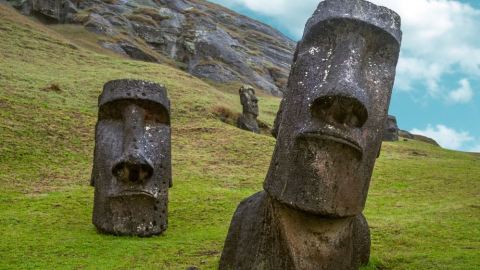Societies Don’t Need an All-Powerful God to Thrive

Anthropological research demonstrates that belief in an all-powerful God is not essential to the formation and development of complex societies.
Canadian researchers previously argued that a singular, moralizing God allowed societies to establish order when population growth outpaced the society’s ability to police moral action.
But new analyses of religious systems that pervaded certain island chains — those running from Madagascar to Easter Island — challenge this notion. Now researchers say that having a singular moral authority is not strictly necessary to enforce the social norms that bind society.

For the new study, anthropologists from the University of Auckland in New Zealand looked at isolated societies that were (a) politically complex, (b) had identifiable systems of deities, and (c) were free of influence from dominant faiths like Islam and Christianity.
Belief in supernatural punishment was enough to stem the tide of social transgression whether or not that punishment came from a singular deity. Belief in ancestor spirits or karma, for example, facilitated enough social order to provide stability.

Today, science more often rules our sense of order than ancestral spirits or the cosmic justice of karma. So does religion still have a role in society? The Pew Research Center has found that the majority of people who consider spirituality important do not identify with a specific religion.
Journalist and scholar Robert Wright affirms that there is a place for religious faith, but it must stay in the moral arena and not challenge scientific findings.
Image courtesy of Shutterstock





